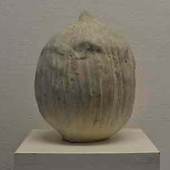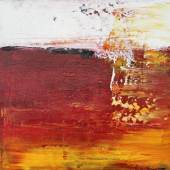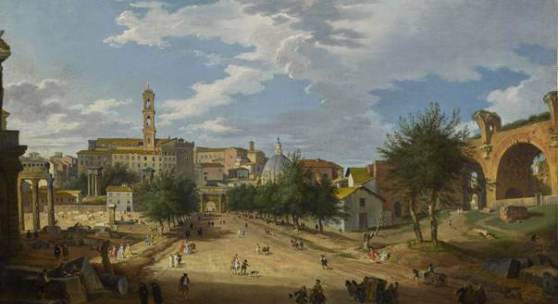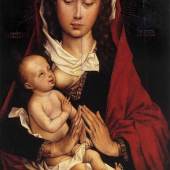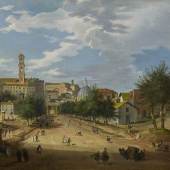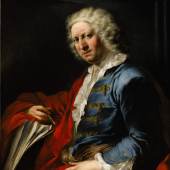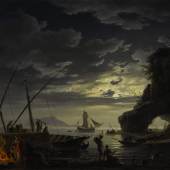Sotheby's London
Rome 1750 - The Dawn of a New Era for Landscape Painting
-
Auktion06.07.2016
London, 23rd June 2016 - It is hard to imagine a place richer in artistic influence than Rome in the 1750s. With its glorious monuments from Antiquity, masterpieces of the Renaissance and the Baroque, and a rarefied and international contemporary art scene, artists travelled from far and wide to be stimulated by this magnetic cauldron of art. The most successful of them were commissioned to record the favourite places of Grand tourists and other foreign visitors. Such was the case for Claude Joseph Vernet who arrived in Rome in 1734 and who, with the leading local Roman painter of the time Giovanni Paolo Panini, would harness the city’s past and present, and together propel the art of landscape painting into a new era.
Sotheby’s London Old Masters Evening sale on 6 July 2016 will present masterworks by Panini and Vernet which together shed light on Rome's extraordinary artistic effervescence in the mid-18th century and show how the city inspired some of the greatest works by these two titans of landscape painting.
Andrew Fletcher, Head of Sotheby’s London Old Masters Auction Sales said: “Rome was perhaps the most important cosmopolitan centre and thriving art market in Europe in the 1750s, with Grand Tourists, European noblemen, collectors, dealers and artists all flocking to the city to admire the sites and acquire works of arts. This July, we are very fortunate to present masterworks by two of the most important artists of the era - Panini and Vernet - who both in their own way revolutionised the art of landscape painting”.
Giovanni Paolo Panini (1691-1765) was the pre- eminent painter of vedute in Rome during the second quarter of the 18th century and his works were high in demand in royal and aristocratic circles in France, Spain and England.
The July sale will present a magnificent view of Rome from 1751 showing Panini at the height of his powers. In this superb prospect, the artist depicted one of the city’s most emblematic sites, the Forum Romanum. This is the only veduta painted by him from this vantage point. A unique work, it testifies to the artist’s originality when recording the topography of his city, combining the ancient and the modern and animating it with figures drawn from contemporary life. His broad animated dabs of paint seem to prefigure the art of the great plein-air landscape painters of the following century (est. £1,000,000- 1,500,000 / €1,280,000-1,920,000 / $1,460,000- 2,180,000, illustrated p.1). Testament to Panini’s strong links to the French community in Rome, the sale will also include a portrait of the Italian master by Louis-Gabriel Blanchet, a virtuoso portraitist from Paris who painted many of the likenesses of the leading social and political figures in Rome of the day. Painted in Rome in 1736, this is the only known stand-alone portrait of Panini (est. £150,000-200,000 / €192,000-256,000 / $218,000-291,000).
Panini was to influence many French landscape painters in Rome, in particular Claude-Joseph Vernet and Hubert Robert, both of whom are represented in our July sale.
Claude-Joseph Vernet (1714-1789), arguably the most famous view painter of the second half of the 18th century, arrived in Rome in 1734 and was quickly recognised as a precocious talent. His success was such that his works soon became sought after amongst a diverse range of patrons, including European and Roman noblemen and churchmen and French diplomats. During these early years, Vernet became best known for his imaginary landscapes and Italianate coastal views which, through their precise execution and the artist’s extraordinary understanding of light, provided the contemporary collector with what seemed to be more vivid impressions of nature than those of his predecessors.
The two magnificent Mediterranean views in the sale - Le Soir and Clair de lune - were painted in 1752, towards the end of Vernet’s Roman period, considered to be the pinnacle of the artist’s long and successful career. Here, as often, the artist produced his paintings in pairs, or sets, contrasting one effect of nature with another – sunset and moonlight.
Commissioned by the Viennese nobleman Ernst Guido, Graf von Harrach, in April 1751, these two landscapes may be considered amongst Vernet’s finest works left in private hands. Coming to the market today for only the second time in their history with an estimate of £3-5 million (€3,840,000-6,400,000 / $4,360,000-7,260,000), they remained in the collection of the Von Harrach family until 1999, when they were acquired at auction by the present owner, achieving a then record price for the artist1.
The sale will also feature four views of Rome by Hubert Robert (1733 - 1808) who following his arrival in Rome in 1754, went on to propagate Panini’s style in his native France. These four canvases depicting monuments of ancient Rome are amongst the earliest works painted by Hubert Robert after his arrival in the city. They typify Robert’s early fascination with the romance of the ruins and their interplay with modern life. During the more than ten years he spent in Rome, Robert would become a leader of his field and establish for himself a reputation resulting in his appointment as the Louvre’s first real ‘curator’ (est. £120,000- 150,000 / €154,000-192,000 / $175,000-218,000).
-
"Maria mit Kind und den Heiligen Petrus, Johannes, Cosmas und Damian" 1450, Frankfurt...
-
06.07.2016Auktion »
Sotheby's London Old Masters Evening sale on 6 July 2016
